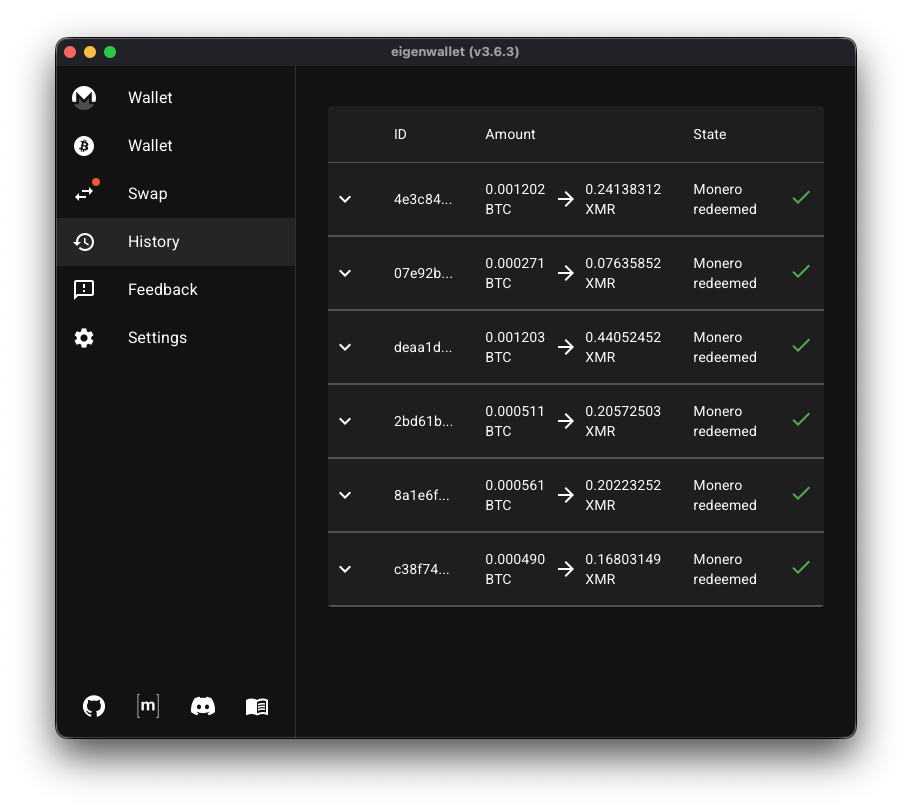



What is eigenwallet?
- - Swap
→
with protocol guaranteed safety (no frozen funds, no fraud, no scams)
- - Battle-tested Atomic Swaps(
→
,Bitcoin → Monero)
- - Send and receive Monero
- - Radical network privacy
(Everything runs over Tor)
- - Buy Monero with EUR via SEPA (EU only)
- - Formerly "UnstoppableSwap"
Atomic Swaps
Exchange Bitcoin for Monero peer-to-peer. No accounts to sign up for and zero risk of frozen funds.
Self-Custody
Your keys, your coins. You are in complete control of your Monero.
Network Privacy
Built-in Tor integration ensures your network traffic remains anonymous and untraceable.
Cross-Platform
Available for Linux, macOS, and Windows. Mobile support is coming soon.
Open Source
Transparent and auditable code. Built by the community, for the community.
Community Funded
Sustained entirely by donations from users who believe in privacy.